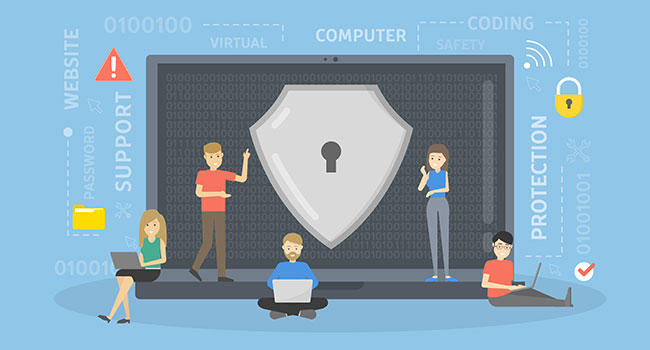
Show your Customers and Clients that Privacy Matters this Data Privacy Day
Every year, we pause on January 28 to focus on data privacy and protection for the annual International Data Privacy Day.
- By Jason Cronk, Jessica Walton
- Jan 24, 2018
Every year, we pause on January 28 to focus on data privacy and protection for the annual International Data Privacy Day. The continuous rise of new privacy and security technologies and capabilities means organizations are always working to evolve best practices for privacy. However, we can’t lose sight of basic physical security measures, especially those visible to customers and prospects.
For your customers, showcasing your commitment to privacy is about contextual clues. For example, when someone asks a question in a whisper, they’re signaling that they want to keep the conversation private. Every business should send similar signals, both through actions and with technologies to indicate that it takes customer privacy and security seriously. Your customers will pick up on these clues – or their absence. Respecting privacy helps create trust, and trust helps lead to strong customer relationships. Privacy and security measures aren’t just about compliance, they’re about building that trust and loyalty that can contribute to your bottom line.
Here are five privacy and security principles that every business should follow and make visible to customers.
Be cautious as well as helpful.
Polite gestures are ingrained for many of us, like holding a door open for someone walking into the office behind you. However, in professional settings, consider how actions protect privacy and security – or put them at risk. It’s possible to sustain a culture that is both welcoming and cautious. Employees should never be afraid to ask for credentials, verify information or follow any other security procedures to the letter.
Create and follow security procedures for guests in your office.
Physical measures for privacy and security often begin at your front door. Every office should have formal security procedures in place for visitors. Even if you don’t have a security guard, it’s important that a receptionist or other employee validate a guests’ authorization to be on premise before giving them entry to your facilities. Issuing temporary badges allows on site employees to visually verify that guests have authorization.
Lock your computer screen whenever you step away.
It’s simple, if you are not physically in front of your computer, you should be locking your screen. This may seem obvious, but sometimes people worry that signing out or locking down their computer in front of another person implies a lack of trust. However, it can only take a few seconds for someone to take a glance at your screen, take a photo or insert a USB stick with malware. Acts of unauthorized viewing, known as visual hacking, can expose confidential information that you and your customers want protected. For your customers, the consistent act of locking your screen is one of those vital contextual clues: there’s no action too small to help protect visual privacy.
Protect information on screen and on paper.
There are simple, and noticeable, measures you can take to help limit the number of eyes on your data. For desktop monitors, laptops, tablets and smartphones that access company information, use privacy filters to help block out the side views for would-be visual hackers. In addition, you should store all printed documents with sensitive information in a locked, secure environment, and implement a clean-desk policy. Document shredders and secure waste containers should also be accessible in all areas where sensitive documents are handled.
Be aware of your surroundings – and show it.
It’s a good practice never to get too comfortable in any environment, especially when customers may be watching. If you are meeting in public, or even in an open office environment, try to position yourself so that the fewest possible people can see screens or documents, and you can carry on a quiet conversation. Keep close tabs on laptops and mobile devices, even when they’re not in use.
In our increasingly digital world, it can be easy to overlook the importance of basic physical measures for data privacy and security. Data Privacy Day offers an opportunity to assess practices and procedures – not only from your company’s internal point of view, but from your customers’ perspective as well.
3M is celebrating Data Privacy Day to raise awareness around the importance of visual privacy and to encourage organizations to make it a priority.